Class 3 Exam > Class 3 Notes > EVS Class 3: The World around us (Our Wondrous World) > Chapter Notes: Taking Charge of Waste
Taking Charge of Waste Chapter Notes | EVS Class 3: The World around us (Our Wondrous World) PDF Download
| Table of contents |

|
| Introduction |

|
| Explanation |

|
| Points To Remember |

|
| Difficult Words |

|
Introduction
Where do you throw the paper cuttings? In which dustbin do you throw the candy wrapper? In our daily lives, we make a lot of waste by various activities. This includes toffee wrappers, bottles, paper, peels of vegetable and fruit, and pencil shavings. Managing waste is important for maintaining a clean environment. The chapter explains how we create waste, the importance of managing waste, and ways to reduce, reuse, and recycle waste.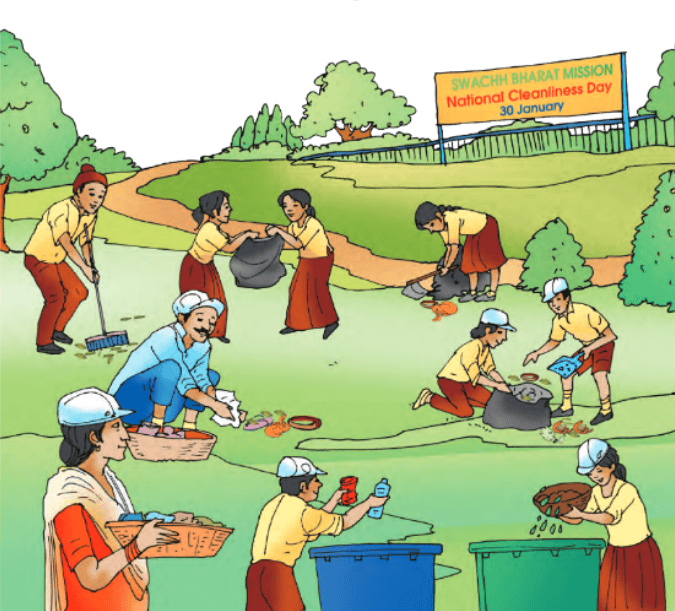
Explanation
How is Waste Created?
We make waste by our everyday activities, which can seen in garbage piles around homes and schools. Disposing of waste properly is important to prevent these garbage piles. Examples of waste are:
- Paper Waste: Used notebooks, and paper scraps.
- Stationery Waste: Empty pens and broken pencils.
- Food Waste: Leftover lunch and snack wrappers.
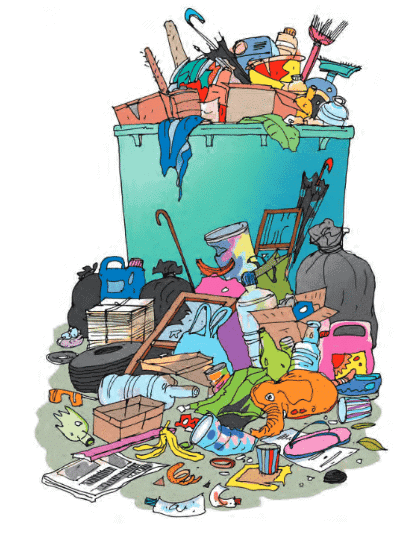
Managing Waste
- Effective waste management is the responsibility of each individual.
- Managing waste is important for maintaining a clean and healthy environment.
- Everyone has a role in managing waste, we can learn from different communities to manage the waste well.
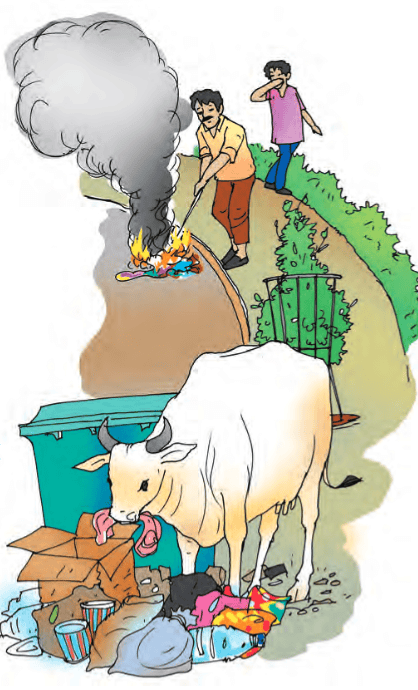
Question for Chapter Notes: Taking Charge of Waste
Try yourself:What is one example of waste created at school ?
View Solution
Ways To Manage Waste
Reduce- Minimize the use of packaging and use reusable items like cloth bags instead of plastic bags.
- Buy only what is necessary and use items until they are no longer usable.
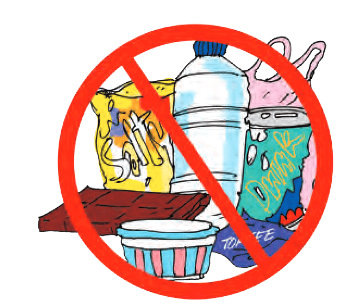
Reuse
- Find new uses for old items, such as making quilts from old sarees, bags from old clothes, and using old newspapers for wrapping.
- Reusing items creatively helps conserve resources and reduces waste.
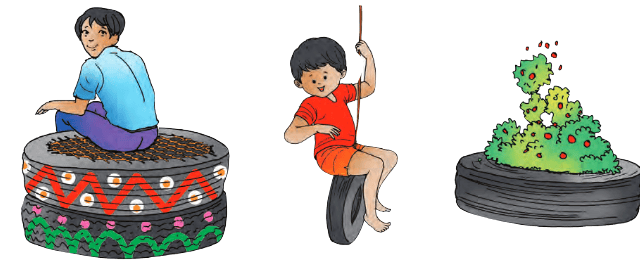
Recycle
- Separate waste into different categories for recycling.
- Use green dustbins for organic waste that can be used to make compost.
- Use blue dustbins for materials like metal, glass, plastic, and paper that can be recycled into new products.
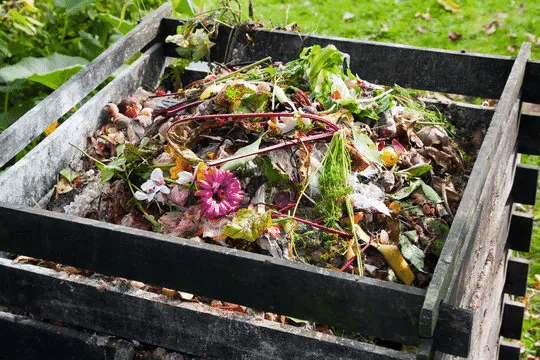
Impact Of Improper Waste Management
- Pollution: Waste can make our surroundings dirty and harm animals.
A Place of Pride
- Villages like Silluk in Arunachal Pradesh and Chhota Narena are managing waste well and are models for waste management.
- Silluk has no trash lying on roadsides or in open spaces and the village has received the title of 'zero waste village.'
- Cities like Indore and Mysuru are recognized for their cleanliness and waste management..
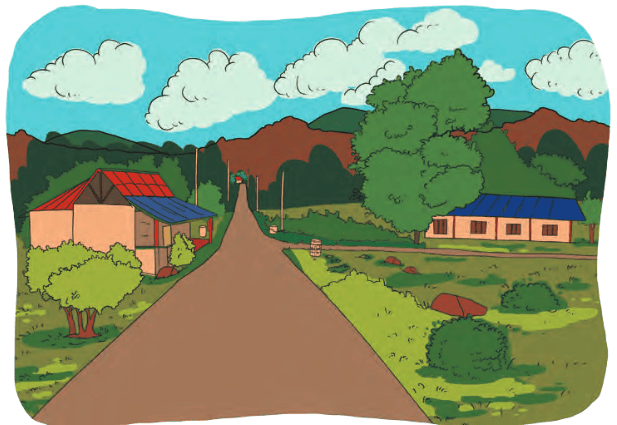
Swachh Bharat Mission
The Swachh Bharat Mission is promoting cleanliness and effective waste management. It encourages people take responsibility for their waste and clean their surroundings.
Separate Different Types Of Waste
Separating waste means putting different types of trash into different bins. Here’s how to do it:Two Bins
- Green Bin: For food and plants.
- Blue Bin: For plastics, glass, metal, and paper.
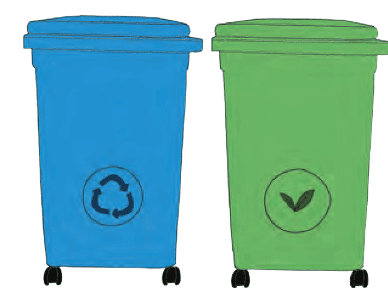
Green Bin
- What Goes In: Fruit peels, veggie scraps, leaves, and eggshells.
- Why: This waste rots and becomes compost, which helps plants grow.
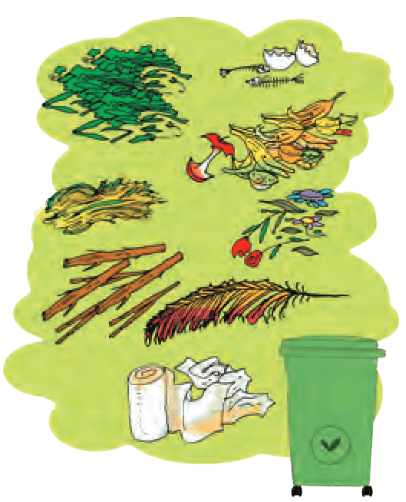
Blue Bin
- What Goes In: Plastic bottles, glass jars, metal cans, and paper.
- Why: These items can be recycled and turned into new things.
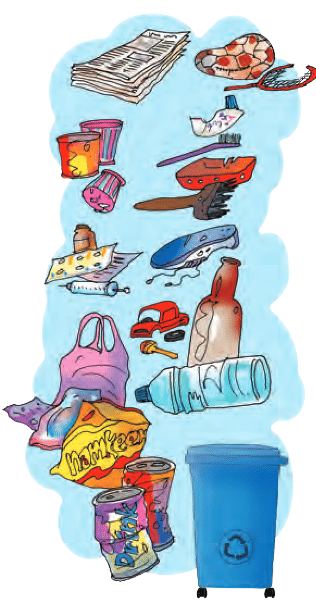
Why Separate ?
By separating waste, we help keep our planet clean and healthy!
Question for Chapter Notes: Taking Charge of WasteTry yourself:What is the primary benefit of separating waste into different categories for recycling?
View Solution
Keeping Our Surroundings Clean
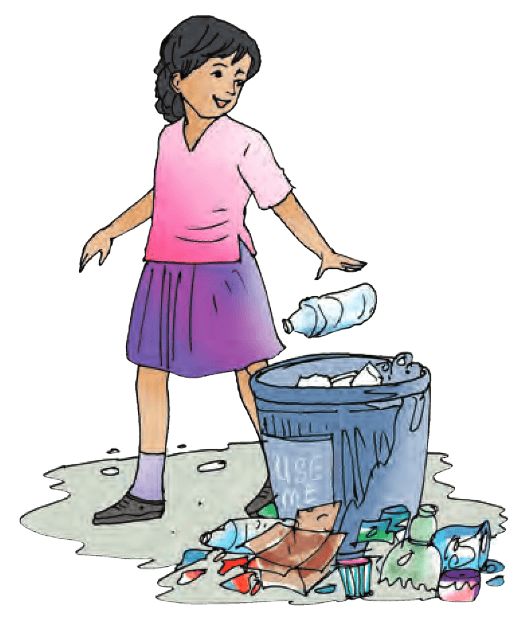
- On National Cleanliness Day (January 30th), pledge to keep yourself and your surroundings clean.
- Try not to create too much waste, manage your waste and dispose off waste properly to build a cleaner and greener world.
- Our aim should be Want not, Waste not.
Question for Chapter Notes: Taking Charge of WasteTry yourself:What is one way to practice waste management and reduce waste?
View Solution
Points To Remember
- Waste is created from everyday activities like using packaged products and throwing away old items.
- Managing waste is important to keep our surroundings clean and healthy.
- Reducing waste is the first step—use fewer plastic items and more eco-friendly options like cloth bags.
- Reuse items whenever possible, like making crafts from old newspapers and refilling bottles.
- Green dustbins are for organic waste like fruit peels and vegetable scraps.
- Blue dustbins are for recyclable materials like metal, glass, plastic, and paper.
- Composting is a way to turn organic waste into food for plants.
- Recycling helps make new products from old materials, reducing the need for new resources.

Difficult Words
- Waste – Unwanted or unused material.
- Compost – Organic material used to enrich soil.
- Recycle – To make new things from old materials.
- Eco-friendly – Something that is good for the environment.
- Organic – Natural material from plants or animals.
- Sanitation – Cleanliness and hygiene, especially related to waste.
- Compost – Food for plants made from rotting organic waste.
The document Taking Charge of Waste Chapter Notes | EVS Class 3: The World around us (Our Wondrous World) is a part of the Class 3 Course EVS Class 3: The World around us (Our Wondrous World).
All you need of Class 3 at this link: Class 3
|
30 videos|128 docs|14 tests
|
FAQs on Taking Charge of Waste Chapter Notes - EVS Class 3: The World around us (Our Wondrous World)
| 1. What is the importance of waste management in our daily lives? |  |
Ans.Waste management is crucial because it helps keep our environment clean and safe. By properly managing waste, we can reduce pollution, conserve resources, and protect wildlife. It also promotes public health by preventing the spread of diseases that can arise from improper waste disposal.
| 2. What are some common types of waste that we generate at home? |  |
Ans.Common types of waste generated at home include organic waste (like food scraps), recyclable materials (such as paper, plastic, and glass), hazardous waste (like batteries and chemicals), and general waste (non-recyclable items). Understanding these categories helps in effective waste segregation.
| 3. How can we reduce the amount of waste we produce? |  |
Ans.We can reduce waste by practicing the three Rs: Reduce, Reuse, and Recycle. This means buying only what we need, using items multiple times, and recycling materials whenever possible. Composting food scraps is another effective way to minimize waste.
| 4. What role do schools and communities play in waste management? |  |
Ans.Schools and communities play a vital role in waste management by educating individuals about the importance of waste reduction and proper disposal methods. They often organize clean-up drives, recycling programs, and awareness campaigns that encourage active participation from everyone.
| 5. What can I do if I see someone littering? |  |
Ans.If you see someone littering, you can politely remind them about the importance of keeping the environment clean. If you feel comfortable, you can offer them a trash bag to dispose of their waste properly. Reporting persistent littering to local authorities can also help address the issue.
Related Searches















